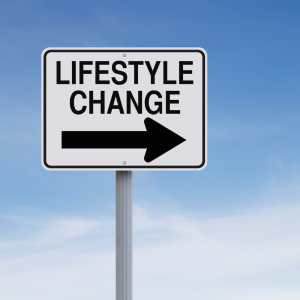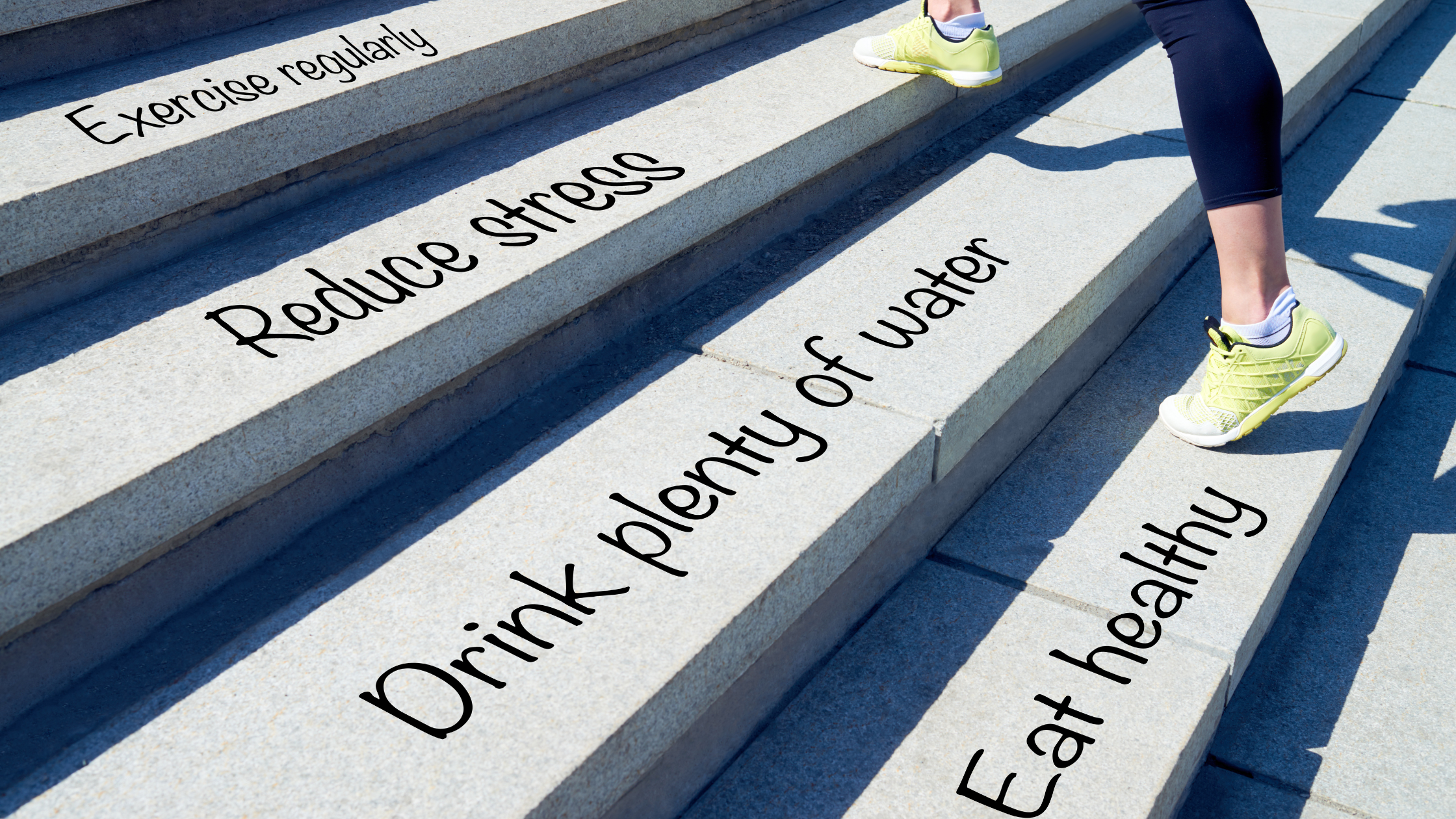Dealing with depression day in and day out is exhausting and really takes the joy out of life. It’s persistent and doesn’t discriminate. You feel hopeless, exhausted, and tearful and would rather lock yourself in your room alone than do anything with anybody.
Living with depression is not living a fulfilling life. 
The good news is that depression is 100% treatable. You might try to beat depression on your own, but that’s pretty hard to do. Afterall, when you feel the way you do, it’s tough to find the motivation to do anything, never mind beat depression.
Getting help from a mental health professional like our team of clinicians at Nexus of Hope is one of the best things you can do for yourself and your loved ones. You’ll improve relationships, find joy in the things you used to do, and learn how to overcome challenging thoughts and emotions now and far into the future.
But did you know there’s more you can do other than get professional help?
Several practical lifestyle changes for depression complement therapy and/or medication management that’ll improve therapeutic outcomes.
Lifestyle Changes for Depression
When combined with therapy, which may or may not include medication management, lifestyle changes can reduce depression symptoms and increase treatment effectiveness. It’s important to note that lifestyle changes for depression aren’t a substitute for treatment. Instead, you can incorporate them into your everyday life to help you get the most out of therapy and/or medication management.
Here are some things you can do:
Eat well
When you feel down, it’s easy to throw caution to the wind and try to comfort yourself with junk food. But to reduce depression symptoms, you want to eat nutritiously. Of course, indulging in the occasional bowl of ice cream or a handful of chips is fine. But try to limit food high in saturated fats and refined sugars and replace them with healthier options.

Some foods you should consider including in your diet to help beat depression include:
- fatty acids: Omega-6s and omega-3s do wonders for your heart health. You can find them in:
- fish
- nuts
- fatty fish
- nut butters
- avocados
- olive oil
- dark, leafy vegetables
- flaxseed
- antioxidants: Your body naturally makes molecules to combat free radicals, which lead to aging, cell damage, and other issues, especially in your brain. Antioxidants fight these free radicals.
Foods containing high amounts of antioxidants include:
|
|
- “Smart” carbs: If you struggle with depression, you may often find yourself craving carbohydrates. Some experts believe carbs are linked to serotonin, your brain’s mood-boosting chemical.
That’s why it’s best to choose “smart” carbs or complex carbs over simple ones like cake, cookies, and white bread. Instead, reach for fruits, vegetables, legumes, and whole grains to get a carb fix and the added benefits of vitamins, minerals, and fiber.
- Vitamin D: When you’re low on vitamin D, you feel run down and exhausted. Well, when you have depression, you feel the same way. It’s crucial to include this essential vitamin in your diet.

Of course, a wonderful place to get vitamin D is from the sunshine. With that said, it’s also important to wear sunscreen. And that prohibits vitamin D absorption. So you must include dietary options such as:
- cod liver oil (supplements)
- salmon
- swordfish
- tuna fish
- orange juice, dairy, and plant milk fortified with vitamin D
- beef liver
- sardines
- egg yolk
- fortified cereals
- Selenium-rich foods: Research has shown that low selenium levels are linked to low moods. Include the following in your diet to increase your selenium and improve your mood:
- lean meat
- low-fat dairy products
- nuts and seeds
- seafood
- whole grains
- beans and legumes
Get active
Exercise is one of the greatest things you can do for your body and mind. In fact, exercise is an excellent way to boost mood-elevating serotonin and endorphins. Research shows getting regular physical activity, which means at least 30 minutes per day, three to five days a week, can help reduce depression symptoms.
Starting and sticking to an exercise regime can be challenging, but the benefits are worth it! During depression treatment, setting realistic goals for yourself is important, so it’s okay to start small. That means you don’t have to sign up to run a marathon or become a gym junkie (unless you want to). You can start by walking around your neighborhood with a friend.

Meditate
Meditation helps relieve anxiety and stress, which often accompany depression. By focusing on deep-breathing techniques and “letting go” of the negative thoughts in your mind, you’ll successfully lower stress and arm yourself with the ability to take on the day.
Depression often involves dark, troubling thoughts. When you meditate, and these problematic thoughts arise, the goal is to accept them and “let them go.” Meditation can also help you by allowing you to recite positive mantras to yourself to replace the thoughts you let go of.
It can be challenging to start a meditation practice, but many excellent guided meditation apps can help you.
Get proper sleep
Sleep and depression have a troublesome relationship. One of the symptoms of depression is having trouble sleeping. At the same time, it’s crucial to have healthy sleep patterns. Perhaps you can’t fall asleep. Or maybe all you want to do is sleep. Whatever your struggle, it’s important to prioritize sleep to get the most out of depression treatment.
Here are some tips:
- Make your bedroom super comfy and cozy. If possible, remove your television and invest in room-darkening curtains.
- Avoid watching TV and being on screens (including your phone) roughly an hour before bed. The blue light from devices tricks your brain into thinking it is still time to be awake, making it more difficult to fall asleep.
- If you nap during the day, limit it to 20 minutes maximum.
- Develop a wind-down routine that could include reading a book, stretching, taking a bath, or anything to help you relax.
Limit substance use
Alcohol and substances can contribute to depression. The two often go hand-in-hand, and they may interfere with antidepressants if you take them. Reducing or eliminating alcohol and substances can significantly increase therapeutic outcomes.
Maintain strong social connections 
One of the most critical lifestyle changes for depression is ensuring you have a solid support network and hanging out with them. Of course, you don’t want to be around people who won’t support you during depression treatment, so carefully choose friends and family members in your support network.
Depression may make you want to be alone, but having positive social connections and engaging in enjoyable activities is crucial.
Nexus of Hope Can Help You Beat Depression Through Our Mental Health Services in Minnesota
At Nexus of Hope, we provide compassionate, experienced mental health services in Minnesota at our office in Burnsville. For your convenience, we also offer online therapy anywhere in Minnesota.
When you partner with us, we’ll ensure we curate the ideal treatment program tailored specifically to your needs. We’ll work with you to determine the best treatment approach for recovery.
Our options for depression treatment in Minnesota include:

- in-person therapy
- online therapy
- medication management
- TMS therapy
Our team of incredible psychiatric nurse practitioners can also help you develop healthy lifestyle changes for depression to complement your treatment.
Contact us to learn more about our comprehensive options for depression treatment in Minnesota, or book online! There’s never been a better time to beat depression than as soon as possible. You deserve it, and we can help.
Contact Us or Book Online
You Might Also Like...
Telehealth: The Advantages of Telemedicine
The COVID-19 pandemic has triggered dramatic changes throughout everyday life — and in the medical community as well.…
The Benefits and Risks of Taking Psychiatric Medications
Not everyone needs psychiatric medication as part of their mental health treatment program. But they can be highly…
If you have an issue that interferes with your quality of life, call Nexus of Hope Psychiatry & Mental Health Wellness or make an appointment online today.



